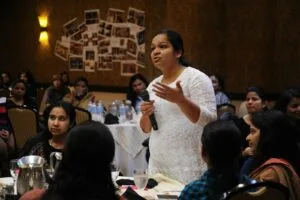Feeling Like a Sperm Donor in My Own Marriage
Marriage can be complicated, full of highs and lows, but recently I’ve been reflecting on a painful truth: sometimes, I feel like I’m just a sperm donor in my own marriage. It’s a raw, uncomfortable feeling, but one that’s become hard to ignore over time.
At first, everything seemed normal. We met, fell in love, got married, and did all the things a married couple is expected to do. We built a life, had kids, and balanced our careers with family. But somewhere along the way, I started to feel like my role in this relationship boiled down to one thing—providing her with children. Beyond that, I’ve felt emotionally disconnected and undervalued.
The Checklist Marriage
Looking back, it’s almost like I was part of a checklist for her. I fit the bill: I’m brown, share the same religion, and I checked all the cultural boxes. At first, I thought that was enough. But now I realize it’s not. She got what she wanted—a partner who fit the image she needed to present to her family. But did she really want me? Or just someone who could give her the life she envisioned?
It feels like, once we had kids, my value in her eyes diminished. I’ve given everything I can to this relationship, but I feel like I’m just here to fulfill a biological function. There’s no real connection, no love, and no sense of partnership anymore. I’m left wondering if this was all I was ever meant to be.
Emotional Disconnect
There’s a coldness that’s crept into our relationship, and I can’t shake the feeling that I’m being ignored. When I express my needs—whether emotional, physical, or otherwise—they go unheard. I’ve tried to have open, honest conversations about how I feel, but even when I see small changes, they don’t last. After a week or two, everything goes back to the same old routine, leaving me feeling more frustrated and alone.
Trying to Communicate—But Getting Nowhere
I’ve always believed that in a relationship, both partners should meet each other halfway. When she needs something, whether it’s practical help around the house or emotional support, I try to be there for her. But when I need something, I get nothing in return. Even basic things like a hug or a kind word are missing.
Recently, I had another conversation with her, hoping things might change. For a short time, I thought I saw improvement. But as always, after a couple of weeks, it faded, and we were right back where we started. It’s a pattern that’s played out again and again over the years, and at this point, I’ve learned not to get my hopes up.
What’s Next?
It’s hard to stay warm and loving when you feel like your partner doesn’t care. And yet, I don’t think she’s doing it on purpose. I genuinely believe she doesn’t understand how I’m feeling, or maybe she doesn’t know how to change. I want to help her through whatever is blocking her from connecting with me, but she needs to want that change for herself. I can’t do the work for her.
If we’re going to make it through this, she has to meet me halfway. Relationships are built on compromise, love, and mutual care. Without that, we’re just going through the motions. I know I’m not asking for much—just basic human connection. A hug, a simple “How are you?” But even that seems out of reach.
Final Thoughts
At the end of the day, I feel like a sperm donor—someone who fulfilled a role but is no longer needed. I’ve given her the life she wanted: a career, a home, and two beautiful kids. But what about me? Where’s the love, the partnership, the emotional support? It feels like I’m not asking for much, but maybe I am.
What’s next? I don’t know. I’ve tried communicating, I’ve tried compromising, and I’ve tried holding on. But if nothing changes, where do we go from here?
Moving Forward with Self-Care and Resilience
If you’re finding yourself in a similar situation, it’s crucial to remember that while we can’t control our partner’s actions or mindset, we can control our response. Practicing self-care and seeking support—whether from friends, a therapist, or even a support group—can provide a grounding space to explore your feelings. Sometimes, creating a little distance can help you see your needs and boundaries more clearly, strengthening your sense of self in the process. Remember, you are not alone in this experience, and seeking help is not a sign of failure but of strength. Acknowledging your feelings, setting boundaries, and building a support network can help you regain clarity and resilience. Whether this ultimately leads to a renewed connection or a different path, valuing your own emotional well-being is key to moving forward.




